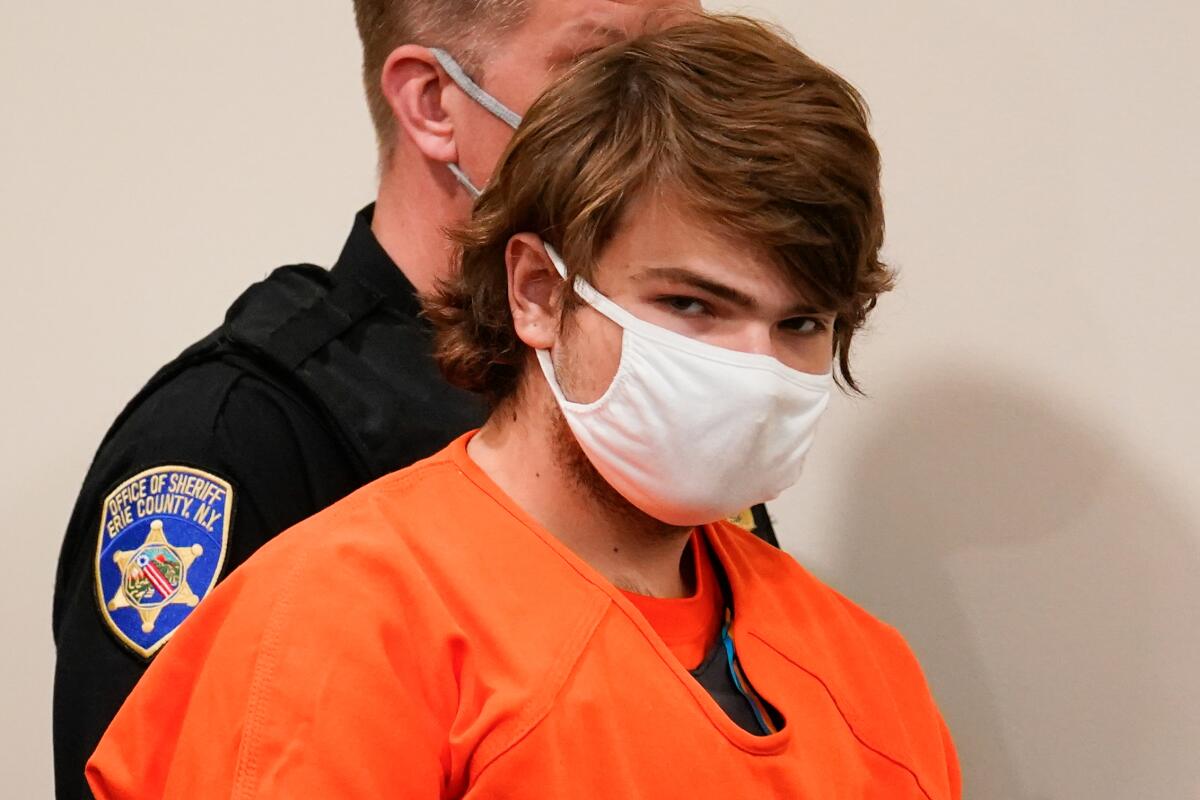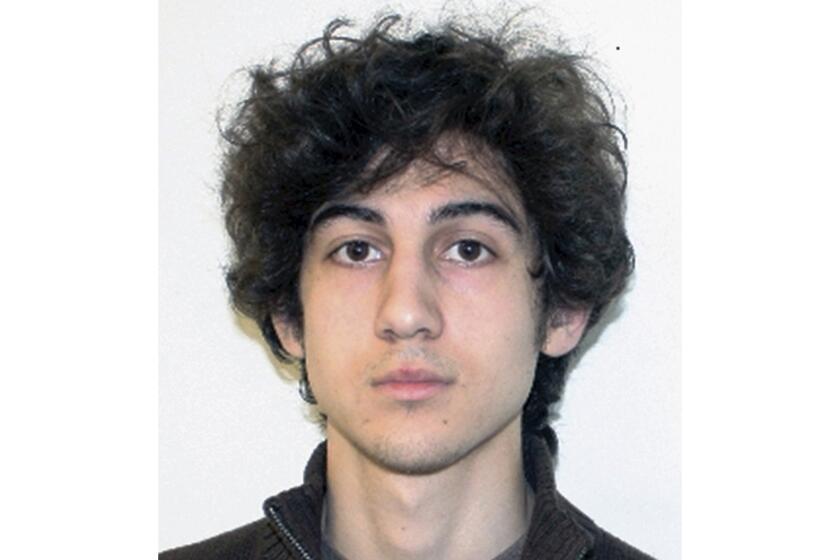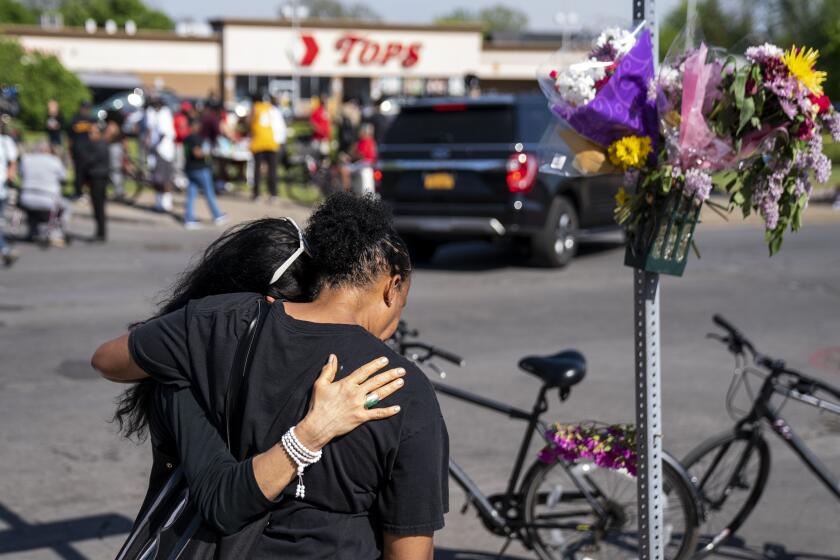Editorial: The death penalty is wrong — even for racist mass killers

- Share via
A judge has asked federal prosecutors whether they will seek the death penalty against the white man accused in the killing of 10 Black people in Buffalo, NY, on May 14.
Their answer should be easy: no.
President Biden promised to eliminate federal capital punishment and to encourage states to do the same. His attorney general, Merrick Garland, has said the U.S. should return to the virtual moratorium on federal executions that began in 2003 and ended with 13 people being put to death in the final six months of the Trump administration (nearly half of those executions took place after the 2020 election).
But instead of simply saying no, the prosecutor in the hate crimes and firearms case against 18-year-old Payton Gendron told U.S. Magistrate Judge H. Kenneth Schroeder, Jr. he would pass the request for a response to Garland. There has been no answer yet, supposedly because prosecutors have procedures to follow, such as conferring with the victims’ families.
But it’s just as likely that the administration is waffling because of the heinousness of the act of which Gendron is accused.
Biden says he opposes capital punishment, yet his administration is pushing for death in the Boston bomber case, even when the sentence was flawed.
If there are crimes that could give even the most stalwart death penalty opponents pause, the Buffalo massacre would surely be among them. Gendron, who has pleaded not guilty, is reported to have traveled more than 200 miles from his home to a supermarket in a predominantly Black part of the city, where he allegedly shot 13 people, 10 of them fatally.
Police have said he was armed for combat, and that he said he acted out of racial hatred. He reportedly studied other racist mass killings and wrote a manifesto citing the so-called “great replacement” conspiracy theory that contends people of color are being imported to the U.S. to diminish the power of white people.
This depraved act of racism and paranoia adds to strains on an American society already racked by mass shootings, political discord, racial tension, economic uncertainty and a historic pandemic.
The particulars of the Buffalo case — a horrendous act of racial terrorism — test the principles of justice. Yet seeking to execute Gendron would be to answer immorality with a moral wrong.
The perpetrators of most massacres of this order generally spare the public soul-searching over the death penalty because they rarely survive their attacks, as is most likely part of their wretched plans. Few tears would probably have been shed for Gendron if police had shot him dead in the midst of the shooting, instead of talking him into surrendering.
It no longer works to call one whacked-out gunman an aberration. Not when we accept the nearly daily efforts to make this a more racist nation.
When the killer is apprehended, though, the killing should end. The punishment for the crime should have nothing to do with what the killer “deserves” or with mercy. Mass murderers may or may not feel they are being shown mercy when they are locked up for the remainder of their lives, but their position on the subject is of little account. State and federal punishments should not include execution because judicial killing has no place in a civilized society.
The state of New York appears to understand that. It has a death penalty statute on its books, but the law was ruled unconstitutional in 2004, and the state has chosen to take no steps to restore capital punishment. It has commuted all remaining death sentences and dismantled all execution equipment and facilities. Gendron faces life without parole in New York state prison, not execution.
But he does face the death penalty under parallel federal prosecution for hate crime and murder-with-firearms charges. It’s not yet clear whether the state or federal trial would proceed first, but the federal judge said he wants an answer quickly on the death penalty because seeking it means more costly procedures, and taxpayers’ money should be protected. Hence the question for Garland, who must decide, and Biden, who promised to end federal capital punishment.
They faced a similar situation last year with one of the Boston marathon bombing perpetrators, whose death sentence was struck down by an appeals court. The administration responded poorly, appealing to the Supreme Court to reinstate the sentence — and winning — while also sticking to its position against executions. Either it supports the death penalty or it doesn’t.
It shouldn’t. Not even for terrorists like the Boston bomber or the Buffalo shooter. If the death penalty is wrong — and it is — it is wrong for everyone.
More to Read
A cure for the common opinion
Get thought-provoking perspectives with our weekly newsletter.
You may occasionally receive promotional content from the Los Angeles Times.












